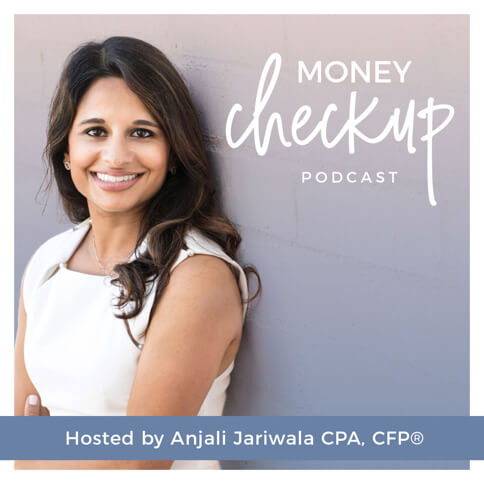When I’m working with new clients as a financial advisor, I often start by asking spouses and partners to evaluate their “money scripts” — what they believe about money and where those views stem from. Then, I ask them to discuss those scripts with each other and me. Once I understand their goals, both individual and shared, I can help them chart a course for their financial lives.
I know how important this part of the process is — and, critically, how important it is to have an external source, like a financial advisor, who can help clients talk through their values and fears. But my husband and I didn’t start using a financial advisor until about two years ago.
It’s one of the best decisions we’ve ever made.
Understanding our money scripts
The stories we tell ourselves about money are really important. Everyone has a money script — a narrative their inner voice tells them about money, often based on family or childhood experiences but can also be shaped by culture, values, and more.
Even though I’m a financial planner, I constantly worry about my own personal finances. My money script is that money is a source of stability. When I don’t have a large stockpile of cash, I experience fear and anxiety. I grew up in an immigrant family in an affluent suburb of Chicago, and always felt like my family never had enough money in comparison to my peers. Even now, it’s easy for me to feel like there’s never enough money.
My husband comes from a similar background — also a child of immigrant parents who grew up middle-class — but he doesn’t really worry about money on a day-to-day basis. He feels confident that there will always be enough money for us to meet our needs.
Since I’m the “money person” in our relationship, it seemed natural for me to become the partner who handled our finances. This is typical in most relationships — someone takes the lead and the responsibility to manage the household finances. But my money script was a problem. I was so concerned about money that I would limit our spending to the point that it caused tension. After years of that tension building between my husband and me, I realized we were in the same place my clients often are.
We needed an outside third party who could assess our financial situation without any personal bias. I can advise my clients well because, other than wanting them to do well, I am not emotionally tied to their money. That’s not the case for my own finances.
What does our financial advisor do for us?
Cash flow is my primary concern. For that reason, our advisor focuses his time on reviewing our cash flow and making projections for the next year or so. That takes up about half of our usual meetings. We spend the remaining half discussing our financial concerns and hearing our advisor’s thoughts.
For me, as someone with a lot of anxiety around money, it really helps to hear someone whose expertise I trust tell me that we’re on the right track. As the financial advisor in my family, I felt like I could only trust my own expertise. But now, I have someone else who I can truly rely on.
Choosing a financial advisor was a lot harder than I expected, despite having lots of friends and colleagues in the industry. As we began talking with potential advisors, I realized that my husband was new to financial planning, and it was important to me that he would be engaged in the process throughout our lives. I focused on finding someone who he would click with. Fortunately we did — an advisor and good friend of mine who has the same calm demeanor my husband does.
Since then, my husband has been much more involved in money discussions. That’s eased a lot of stress between us. Also, with our financial advisor’s help, my husband has a better understanding of where we are financially. That’s helped me let go of some of my frugality as well as take some of the burden away from being the only person who understands our finances.
Best of all, when I stress out about money, I no longer argue with my husband. We just schedule a meeting with our advisor, who runs our numbers and helps us discuss any concerns we have.
How we manage money in our relationship
My husband is a physician, and I run my own business, so our finances are a little unconventional. My husband’s income goes directly into our joint account. Every month, I transfer a certain amount from my business account into our personal joint account. That account funds our monthly bills.
From there, we move savings into various buckets. We make a monthly contribution to a 529 for our daughter’s education. We also save monthly for property taxes, estimated tax payments, and travel. I save monthly for contributions to my business’s retirement plan. And we make a monthly contribution to an extra savings account, which we primarily use as an emergency fund.
I revisit our cash buckets and savings goals every six months or so to see if we should make any adjustments. And if one of our incomes grows, we try to capture that increase by saving it, rather than changing the way we live.
I often recommend that my married or partnered clients create separate discretionary spending accounts, but my husband and I do not do that. We’ve agreed that before we purchase something over a set dollar amount, we’ll discuss it with one another.
I do still manage much of our finances myself, including our investments and insurance. But having an external advisor has been a kind of financial therapy. Since our financial life is only going to get more complex, I’m really glad we started using an advisor sooner rather than later. And I’m glad that my husband is now involved in the process and we can make financial decisions together with the help of our advisor!




